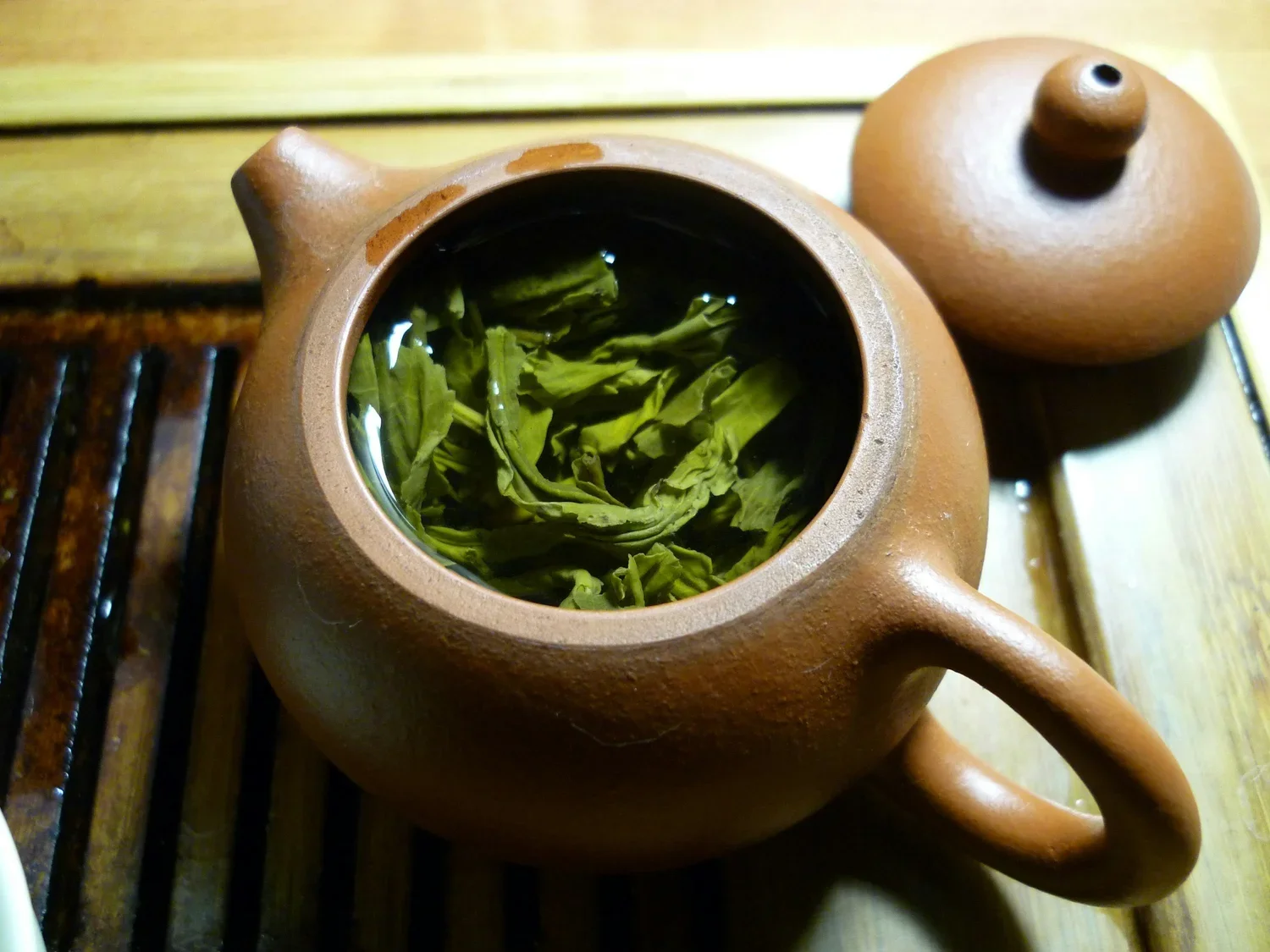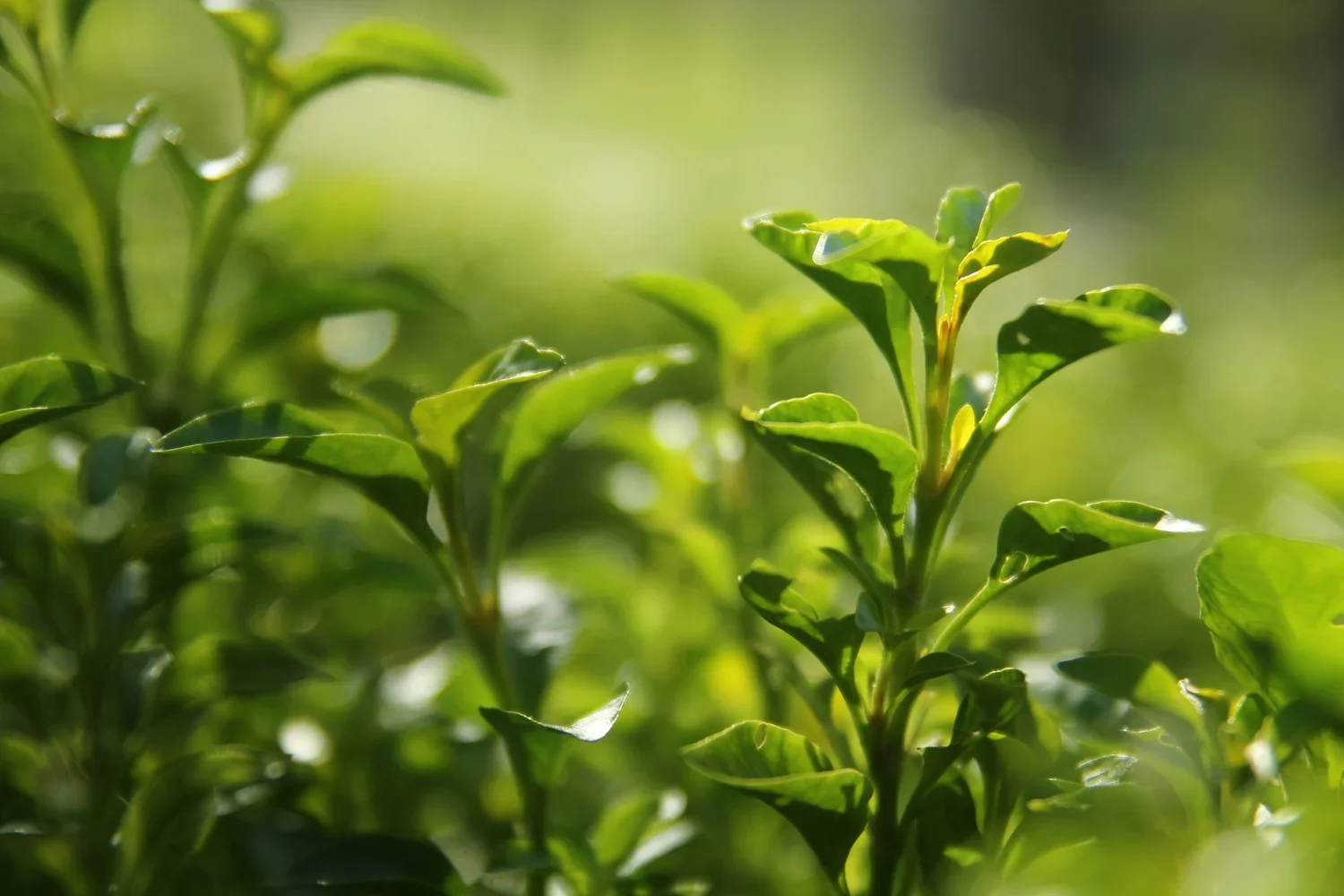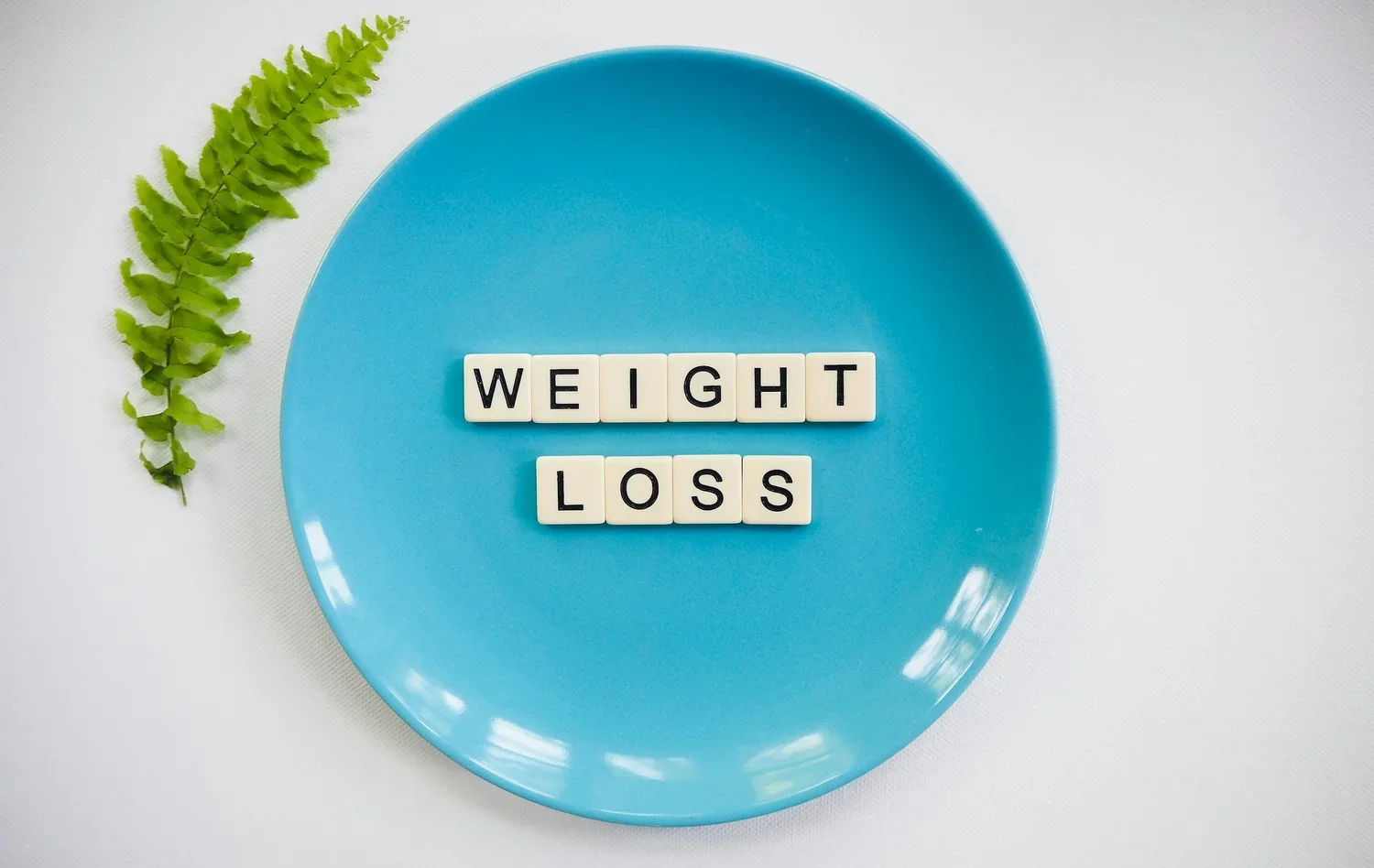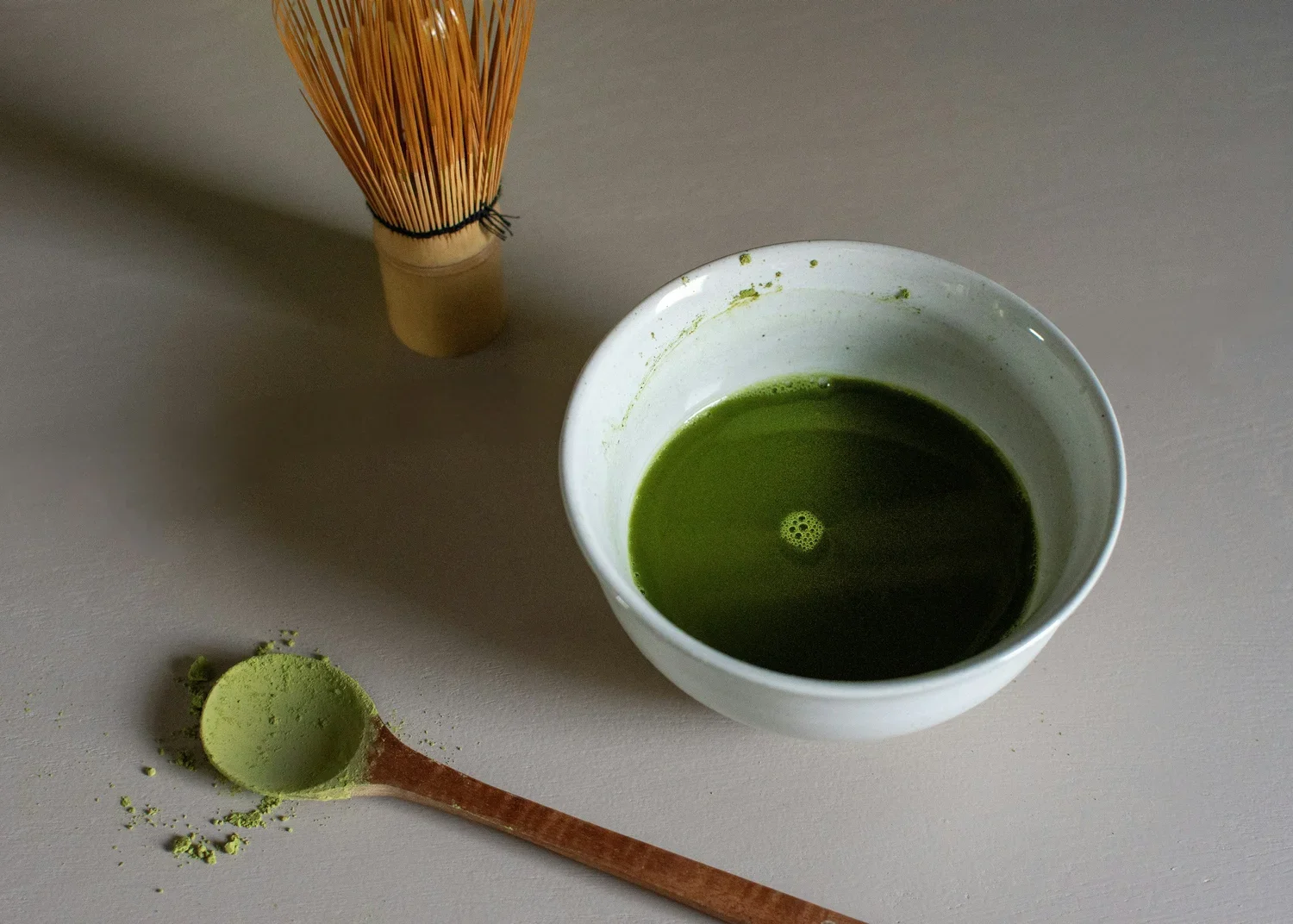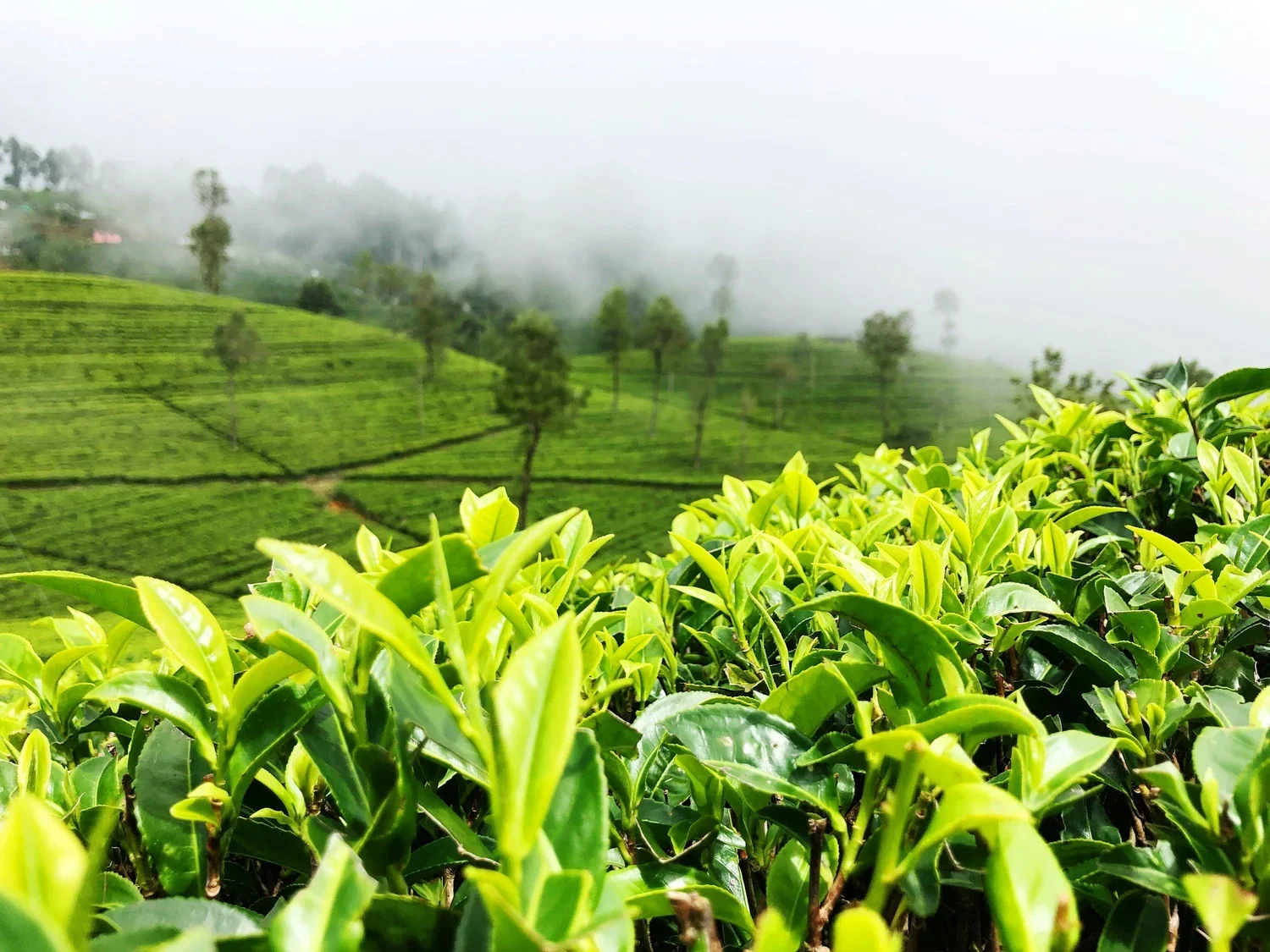Does Green Tea Really Help You Lose Weight? The 2025 Expert Guide to Weight Loss and Health Benefits
Welcome! If you'cup of green tea can actually help you lose weight, you're in the right place. For centuries, green tea has been celebrated not just for its refreshing taste but also for its array of health benefits. But does it genuinely help with weight loss? The shorgreen tea may help with weight loss and weight management, but it's not a magic potion on its own. It’s one powerful tool in your wellness arsenal! Research, such as a comprehensive review on the "Beneficial effects of green tea: A literature review," highlights its diverse pharmacologgreen tea can help you on your journey to a healthier body weight, what the science says, and how you can incorporate this fantastic tea into your life – perhaps with a delicious option from ShareTea's Brewed Tea selection. We'll dive deep into how this ancient beverage may help with weight management, so let's get started!
What Exactly is Green Tea and Why is it a Global Favorite for Health?
Green tea originates from the Camellia sinensis plant, the same plant that gives us black **tea and oolong tea. The difference lies in the processing of the tea leaves. For green tea, the leaves are steamed or pan-fired shortly after harvesting. This process prevents oxidation, preserving its vibrant green color and, more importantly, its rich concentration of beneficial compounds called pogreen tea's acclaimed health benefits.
For thousands of years, primarily in East Asia, green tea has been more than just a beverage; it's been a cornerstone of traditional medicine and culture. Its global populweight management, green tea offers a compelling package. Many people drink green tea not only for its potecup of green tea is a pleasure in itself.
At ShareTea, we understand the appeal of authentic, high-quality tea. Whether you prefer a classic, unadulterated green tea like our Classic Green Tea or are curious about innovative blends, the foundation is always fresh, carefully selected tea leaves. This commitment ensures you're getting a delightful and potentially beneficial tea experience every time. The question of "does green tea
How Might Green Tea Help with Weight Loss? Unpacking the Science
The buzz around green tea for weight loss isn't just hype; there's a growing body of scientific research explormay help with weight loss and weight maintenance in overweight individuals. The primary ways green tea is thought to exert its effects involve boosting metabolism, enhancing fat burning (also known as fat oxidation), and potentially influencing appetite and fat absorptiogreen tea a subject of interest for those looking to manage their body weight.
Several studies suggest that green tea can influence how your body handles calories and fat. For instance, a meta-analysis on "The effects of green tea on weight loamount of weight loss is typically modest, incorporating green tea into a healthy lifestyle that includes a balanced diet and regular exercise could providegreen tea is an aid, not a standalone solution for significant weight loss.
Furthermore, the effect of green tea isn't just about shedding pounds; it's also about improving overall metabolic health. Research into "Effects of green tea consumption on metaboliconsuming green tea a potentially smart choice for overall well-being, beyond just its weight loss effects.
The Power Players: Key Compounds in Green Tea That May Help (Catechins/EGCG & Caffeine)
Two main components in green tea are credited with its potential weight loss benefits: catechins and caffeine. The most abundant and potent catechin is epigallocatechin gallate (EGCG), a powerful antioxidant that has been extensively stuhealth benefits, including its ability to help reduce body fat. EGCG is thought to help inhibit an enzyme that breaks down norepinephrine, a hormone that signals fat cells to break down fat. When this enzyme is inhibited, norepinephrine levels increase, leading to more fat breakdown.
Caffeine, a well-known stimulant found in green tea, also plays a significant role. Caffeine in green tea may contribute to weight loss by increasing energy expenditure (helping you burn more calories) and enhancing fat oxidation. The combination of EGCG and caffeine in green tea appears to be synergistic, meaning they work together to produce a greater effect than either compound would alone. This is why many studies on green tea and weight loss focus on the combined impact of these substances. A study on "Green tea catechins and their metabolites in human tissues" delves into how these compounds are absorbed and utilized by the body.
It's this dynamic duo that makes brewed green tea a subject of such interest. While the amounts of EGCG and caffeine can vary depending on the type of green tea, brewing time, and processing, a typical cup of green tea provides a moderate dose that can contribute to these metabolic effects. For those seeking a more concentrated form, options like matcha green tea (which we'll discuss later) or even green tea extract (though caution is advised with extracts) are available. Understanding what does black tea taste like or whether oolong tea is black tea can help you appreciate the unique profile of green tea.
Can Drinking Green Tea Genuinely Boost Your Metabolism and Fat Burning?
One of the most talked-about benefits of green tea is its potential to boost metabolism and increase fat burning. Your metabolism is the process by which your body converts what you eat and drink into energy. A higher metabolic rate means you burn more calories, even at rest. Several studies suggest that the compounds in green tea, particularly EGCG and caffeine, can indeed have a thermogenic effect, increasing energy expenditure and promoting fat oxidation.
The way green tea may help stimulate fat burning is quite fascinating. As mentioned, EGCG can help prolong the action of norepinephrine, which signals the nervous system to break down fat. This means more fatty acids are released into the bloodstream, making them available as energy. Caffeine complements this by further stimulating the central nervous system and increasing the mobilization of fatty acids from fat tissues. Some research indicates this effect is particularly noticeable during exercise, suggesting that drinking green tea before a workout could enhance its fat-burning effects.
While the boost might be modest, consistent consumption of green tea could contribute to a cumulative effect over time, aiding in weight loss and weight maintenance. It's not about a dramatic overnight transformation, but rather a gentle, sustained support to your body's natural fat-processing capabilities. This makes green tea a valuable addition to a diet aimed at reducing body weight and improving body composition. If you're curious about caffeine levels, it's useful to compare: "does black or green tea have more caffeine?"
Targeting Trouble Spots: Does Green Tea Help You Lose Stubborn Belly Fat (Visceral Fat)?
Many people are particularly interested in whether green tea can help target belly fat, also known as abdominal fat or visceral fat. Visceral fat is the fat stored deep within the abdominal cavity, surrounding organs like the liver and intestines. It's considered more dangerous than subcutaneous fat (the fat under your skin) because it's strongly linked to an increased risk of chronic diseases, including type 2 diabetes and heart disease.
The exciting news is that some research suggests green tea may be particularly effective at reducing visceral fat. Several human studies have shown that individuals consuming green tea or green tea extract experienced a greater reduction in abdominal fat compared to control groups. For example, a systematic review and meta-analysis on "Can green tea preparations help with weight loss?" often looks at changes in waist circumference, a key indicator of visceral fat. Another similar study, "Does green tea catechin enhance weight-loss effect of exercise training in overweight and obese individuals?" further supports these findings.
While the exact mechanisms are still being fully understood, it's believed that the catechins in green tea, especially EGCG, play a crucial role. They may influence fat metabolism in a way that preferentially targets visceral fat. While green tea alone won't magically melt away belly fat, its inclusion in a comprehensive weight loss plan that includes a healthy diet and regular physical activity seems promising for tackling this stubborn and harmful type of body fat.
What Do Studies Say? A Look at Green Tea Consumption and Weight Loss Research
When it comes to green tea consumption and its effect on weight loss, numerous studies have been conducted, ranging from laboratory experiments to human clinical trials. The overall picture painted by this research is that green tea can help contribute to modest weight loss or better weight maintenance in overweight and obese individuals. Meta-analyses, which combine results from multiple studies, often conclude that green tea preparations have a statistically significant, albeit small, positive effect on body weight and fat.
While some studies show more pronounced weight loss effects, others find minimal differences. This variability highlights that green tea is not a guaranteed solution but a supportive measure. Researchers often emphasize that found that green tea works best when combined with other healthy lifestyle choices. The consensus is that regular green tea intake, as part of a calorie-controlled diet and active lifestyle, may help with weight loss and can be a beneficial component of a weight management strategy.
How Much Green Tea Should You Drink Daily for Potential Weight Loss?
Determining the optimal amount of green tea daily for weight loss isn't an exact science, as research findings vary and individual responses differ. However, most studies that have shown positive effects on weight have used dosages equivalent to drinking approximately 2 to 4 cups of green tea per day. This range seems to provide a beneficial amount of catechins (especially EGCG) and caffeine without leading to excessive caffeine intake for most adults.
A standard cup of green tea (about 8 ounces or 240 ml) typically contains 50-100 mg of catechins and 20-40 mg of caffeine, though this can fluctuate based on the type of tea, how long it's brewed, and the water temperature. Some studies use green tea extract to achieve higher, more controlled doses of EGCG and caffeine. If you're drinking green tea itself, aiming for this 2-4 cup range is a generally accepted guideline. It’s always good to be mindful of your overall caffeine consumption from other sources throughout the day.
For those who enjoy their tea experience, reaching this amount can be a pleasant part of the day. Consider starting your morning with a cup of green tea, having another mid-day, or enjoying one in the afternoon. At ShareTea, our Classic Green Tea is brewed to perfection, making it easy to enjoy a quality cup of green tea anytime. Remember, consistency is key; the potential benefits of green tea are more likely to be seen with regular, long-term consumption of green tea.
When is the Best Time to Drink Green Tea to Maximize Benefits for Weight Management?
While you can enjoy green tea at almost any time of day, there might be certain times when drinking green tea could be particularly beneficial for weight management and overall health benefits. Many experts suggest drinking green tea in the morning to kickstart your metabolism and provide a gentle energy boost from its caffeine content. This can set a positive tone for the day.
Another strategic time to drink green tea is before exercise. Some research indicates that the EGCG and caffeine in green tea can increase fat oxidation (fat burning) during moderate-intensity exercise. Having a cup of green tea about 30-60 minutes before your workout could potentially help you burn more calories and fat. It’s also wise to drink green tea between meals rather than directly with meals, especially if you are concerned about iron absorption, as tannins in tea can slightly interfere with the absorption of non-heme iron (iron from plant sources).
Avoid drinking green tea too close to bedtime, especially if you are sensitive to caffeine. While green tea generally has less caffeine than coffee or black tea, it can still disrupt sleep for some individuals. Allowing at least a few hours between your last cup of green tea and sleep is a good practice. Ultimately, the "best" time is one that fits your lifestyle and allows you to consistently enjoy your tea. Perhaps you're looking for date ideas in Los Angeles or San Francisco – a stop at ShareTea for a refreshing green tea could be a great addition!
Are All Green Teas Equal? Exploring Different Types (Like Matcha Green Tea) and Their Effectiveness
Not all green teas are created equal when it comes to their potential weight loss benefits, primarily due to variations in their processing, growing conditions, and how they are prepared. These factors influence the concentration of key compounds like EGCG and caffeine. While all true green teas come from the Camellia sinensis plant, the specific cultivar and preparation method make a difference.
Matcha green tea is often highlighted as being particularly potent. Matcha is made from shade-grown tea leaves that are stone-ground into a fine powder. When you drink matcha, you consume the entire leaf rather than just an infusion, which means you ingest a significantly higher concentration of catechins (including EGCG) and antioxidants compared to regular brewed green tea. This makes matcha green tea a popular choice for those seeking maximum health benefits, including weight loss support. ShareTea's New Matcha Series, like the Matcha Pearl Milk Tea or a simple Matcha Fresh Milk, offers delicious ways to experience the power of matcha. Learning about the benefits of drinking matcha latte or even a matcha latte recipe can enhance your appreciation.
Other types of green tea, such as Sencha (the most common Japanese green tea), Gyokuro (a premium shade-grown tea), and various Chinese green teas like Dragon Well (Longjing), also offer significant health benefits. While they might have different flavor profiles and slightly varying EGCG levels, regular consumption of any quality green tea is likely to be beneficial. The key is to choose a high-quality tea and prepare it correctly to preserve its valuable compounds. Opting for unsweetened versions is also crucial if weight loss is your goal, as added sugars can negate the benefits. For instance, ShareTea offers a Green Milk Tea which can be customized for sweetness.
Beyond the Scale: What Are the Other Amazing Health Benefits of Green Tea?
While the focus here is on green tea and weight loss, it would be remiss not to highlight the myriad of other health benefits of green tea. This remarkable beverage is packed with antioxidants and bioactive compounds that can positively impact nearly every system in your body. Its traditional use for promoting overall health is now being increasingly validated by modern science.
Here's a snapshot of some well-researched benefits of green tea:
Improved Brain Function: The L-theanine and caffeine in green tea can work synergistically to improve brain functions like mood, vigilance, reaction time, and memory. L-theanine also promotes relaxation without drowsiness.
Heart Health: Green tea consumption has been linked to reduced risk factors for cardiovascular disease, including lower LDL ("bad") cholesterol, triglycerides, and blood pressure.
Potential Cancer Prevention: The powerful antioxidants in green tea, particularly EGCG, are believed to protect cells from DNA damage caused by free radicals, potentially reducing the risk of certain types of cancer. More research is needed, but initial findings are promising.
Lower Risk of Type 2 Diabetes: Green tea may help improve insulin sensitivity and reduce blood sugar levels, contributing to a lower risk of developing type 2 diabetes. The study "Effects of green tea consumption on metabolic and anthropometric indices in patients with type 2 diabetes" provides further insights into this area.
Oral Health: Catechins in green tea can inhibit the growth of bacteria in the mouth, reducing the risk of cavities, gum disease, and bad breath.
Anti-inflammatory Effects: Chronic inflammation is linked to many diseases. The polyphenols in green tea have anti-inflammatory properties that can help combat this.
These are just a few examples of why green tea is considered a superfood. So, while you might start drinking green tea for weight management, you'll be gaining a host of other wellness advantages too!
Are There Any Side Effects or Considerations When You Drink Green Tea?
While green tea is generally considered safe for most adults when consumed in moderation (around 2-4 cups per day), there are a few potential side effects and considerations to keep in mind. Most of these are related to its caffeine content or, in rarer cases, high doses of green tea extract.
Common considerations include:
Caffeine Sensitivity: Green tea contains caffeine, although typically less than coffee or black tea. Individuals sensitive to caffeine may experience symptoms like nervousness, insomnia, irritability, upset stomach, or a rapid heartbeat. If you're sensitive, you might opt for decaffeinated green tea or limit your intake.
Iron Absorption: Tannins in tea can slightly reduce the absorption of non-heme iron (from plant-based foods). If you have iron-deficiency anemia, it's advisable to drink green tea between meals rather than with them.
Interactions with Medications: Green tea or green tea extract can interact with certain medications, such as blood thinners (like warfarin) due to its vitamin K content, and some stimulants or heart medications. If you are on any medication, it's always best to consult your doctor before making green tea a significant part of your routine.
Liver Concerns (with extracts): While drinking brewed green tea is very safe, there have been rare reports of liver problems associated with high doses of green tea supplements or extracts. This is usually not a concern with moderate consumption of the beverage itself.
Pregnancy and Breastfeeding: Pregnant or breastfeeding women should limit caffeine intake. It's wise to discuss green tea consumption with a healthcare provider. You might find articles like "is black tea safe during pregnancy" relevant for general tea consumption concerns during this time.
For most people, enjoying a few cups of green tea per day is a healthy and safe habit. Listening to your body and consulting with a healthcare professional if you have underlying health conditions or concerns is always a prudent approach.
Simple Ways to Make Green Tea: Tips for the Perfect Cup for Weight Loss and Enjoyment
Learning how to make green tea properly can significantly enhance its flavor and preserve its beneficial compounds, making your weight loss journey more enjoyable. Unlike robust black tea, which often requires boiling water (see "how long to steep black tea" for comparison), green tea leaves are more delicate.
Here are some tips for brewing the perfect cup of green tea:
Water Temperature: Use hot, but not boiling, water. The ideal temperature for most green teas is between 160-180°F (70-82°C). Water that's too hot can make the tea taste bitter.
Steeping Time: Don't over-steep! Green tea typically requires a shorter steeping time than black tea or oolong tea. Aim for 1-3 minutes. Longer steeping can also lead to bitterness.
Quality of Tea: Start with good quality green tea leaves or tea bags. Loose leaf tea often provides a more nuanced flavor. ShareTea, for example, prides itself on using fine ingredients for their Brewed Teas.
Amount of Tea: Use about one teaspoon of loose tea leaves or one tea bag per 8-ounce cup of green tea.
Avoid Added Sugars: If your goal is weight loss, it's best to enjoy your green tea unsweetened. If you need a little something, a tiny squeeze of lemon is a better option than sugar or honey in large amounts.
Of course, if you're on the go or prefer the convenience of expertly prepared tea, visiting a ShareTea location is a fantastic option. You can explore a variety of tea options, including classic green tea and innovative green tea beverages, all made with quality and care. And for those curious about other tea preparations, ShareTea also offers insights into "how to make milk tea" or "how to make boba" if you decide to explore other delightful tea experiences.
Green Tea vs. Black Tea and Other Teas: Which is Superior for Helping You Lose Weight?
When considering tea for weight loss, green tea often takes the spotlight, but how does it compare to black tea, oolong tea, or white tea? All these tea types originate from the Camellia sinensis plant but differ in their processing, which affects their chemical composition and potential health benefits.
Green tea is minimally oxidized, preserving a high concentration of EGCG, the catechin most strongly linked to fat burning and metabolism-boosting effects. Black tea, on the other hand, is fully oxidized, which changes its catechin profile into theaflavins and thearubigins. While these compounds also have health benefits, including some antioxidant properties, the research supporting black tea for direct weight loss is generally less robust than for green tea. That's not to say black tea isn't healthy (check "is black tea fattening?" for more on that myth – it isn't, if unsweetened!), but green tea often has the edge in studies focused on weight management.
Oolong tea is partially oxidized, placing it somewhere between green tea and black tea in terms of catechin content and flavor. Some studies suggest oolong tea may also aid in weight loss by improving fat metabolism. White tea is the least processed and has a delicate flavor; it also retains high levels of antioxidants and may offer similar benefits to green tea, though it's often less studied. Ultimately, while green tea (especially types like matcha green tea) seems to have the most research backing its specific weight loss effects due to its EGCG content, incorporating any unsweetened tea into your diet in place of sugary beverages can be a positive step for weight loss and weight maintenance.
Is Green Tea a Standalone Miracle for Weight Loss, or Part of a Bigger Picture?
It's crucial to have realistic expectations: while green tea can help and may lead to weight loss, it is not a standalone miracle solution. No single food or drink can magically shed pounds without changes to overall diet and lifestyle. The effect of green tea on weight loss is best understood as a supportive role within a comprehensive weight management strategy.
For green tea to effectively aid in weight loss, it should complement a balanced, calorie-controlled diet and regular physical activity. The modest increase in metabolism or fat burning attributed to green tea consumption can give you an edge, but it won't override the effects of a consistently high-calorie diet or a sedentary lifestyle. Think of green tea as one of many tools in your weight loss toolkit.
The real power comes from sustainable habits. Drinking green tea can be one of those healthy habits, helping with hydration, providing antioxidants, and potentially giving your metabolism a nudge. It can also be a satisfying, low-calorie alternative to sugary drinks, which directly contributes to reducing overall calorie intake. So, while you drink green tea for weight benefits, remember it's most effective when you're also making conscious choices about your food and staying active.
Incorporating Quality Green Tea into Your Healthy Lifestyle: Delicious & Convenient Options (Featuring ShareTea)
Integrating green tea into your daily routine can be both enjoyable and beneficial for your weight loss goals and overall health. The key is to find ways that suit your taste and lifestyle. Whether you prefer a simple, traditional cup of green tea or more innovative green tea products, consistency is what will yield the best results.
One of the easiest ways to ensure you're getting quality green tea is to choose reputable sources. For a convenient and delicious option, ShareTea offers a range of green tea beverages. You can opt for their Classic Green Tea, which is brewed fresh daily, ensuring a pure tea experience. If you're looking for something with a bit more flair, their Mango Green Tea or even a Honey Green Milk Tea (request less sugar for weight loss focus) can be delightful choices. And don't forget the potent Matcha Series, which provides a concentrated dose of green tea's goodness.
Making green tea a part of your daily habits—perhaps replacing a sugary soda or a high-calorie coffee drink—can make a significant difference over time. It’s about making small, sustainable changes. Exploring different types of green tea and preparation methods can also keep things interesting. Remember, the journey to weight loss and weight maintenance is a marathon, not a sprint, and green tea can be a wonderful companion along the way. If you're wondering "does black tea keep you full?" or "does black tea make you poop?", exploring these aspects of different teas can also be part of your wellness journey. For a local treat, find the best boba near you at a ShareTea store!
FAQ: Your Top Questions About How Green Tea Can Help with Weight Loss Answered
Here are answers to some of the most frequently asked questions about green tea and its role in helping you lose weight.
Can green tea reduce belly fat specifically?
Yes, some research suggests green tea may help preferentially reduce visceral fat (belly fat). The catechins in green tea, particularly EGCG, are thought to play a role in this targeted fat reduction. However, it works best as part of an overall weight loss strategy including diet and exercise.
How much weight can you realistically lose by drinking green tea?
The amount of weight loss is typically modest, often around 1-3 pounds over several weeks or months, based on studies. Green tea is an aid, not a primary driver of significant weight loss. Its effects are more pronounced when combined with a healthy lifestyle.
What is the best time of day to drink green tea for weight loss benefits?
Many suggest drinking green tea in the morning to boost metabolism, or before exercise to potentially enhance fat burning. Avoid drinking it too close to bedtime if you're sensitive to caffeine.
How many cups of green tea should I drink per day for weight loss?
Most studies showing benefits use amounts equivalent to 2-4 cups of green tea per day. This provides a good dose of catechins and caffeine without being excessive for most people.
Are there any side effects of drinking green tea for weight loss?
For most, green tea is safe. Potential side effects are usually mild and related to caffeine (e.g., jitteriness, sleep issues if consumed late). High doses of green tea extract supplements have been linked to liver issues in rare cases, but this is not typically a concern with brewed green tea.
Is green tea more effective than black tea for losing weight?
Green tea, especially matcha green tea, generally has higher levels of EGCG, the catechin most linked to weight loss effects, compared to black tea. Therefore, it's often considered to have a slight edge for this specific purpose.
Should I drink green tea on an empty stomach to lose weight?
Some people find drinking green tea on an empty stomach can cause mild stomach upset due to tannins. While it might absorb slightly faster, it's generally fine to drink it between meals or after a light snack. Listen to your body.
Does adding ingredients like honey or lemon to green tea affect its weight loss properties?
Adding a small amount of lemon can enhance antioxidant absorption. However, adding significant amounts of honey, sugar, or milk will add calories, potentially negating the weight loss benefits of green tea. Opt for unsweetened if weight loss is the primary goal.
Which type of green tea (e.g., matcha, sencha) is most potent for weight loss?
Matcha green tea is generally considered one of the most potent because you consume the entire leaf, resulting in a higher intake of EGCG and other beneficial compounds compared to steeped green teas like sencha.
How long does it generally take to see weight loss results from drinking green tea?
Results vary. Some studies show modest changes within a few weeks to a few months. Consistent, long-term consumption as part of a healthy lifestyle is key. Don't expect rapid results from green tea alone.
Is green tea extract more effective for weight loss than brewed green tea?
Green tea extract is more concentrated and often used in studies to ensure specific doses of EGCG and caffeine. It may help with weight loss, but extracts also carry a higher risk of side effects, particularly for the liver if taken in very high doses. Brewed green tea is generally safer for regular consumption.
How does green tea actually boost metabolism?
The combination of catechins (like EGCG) and caffeine in green tea is thought to increase thermogenesis (heat production) and fat oxidation, leading to a slight increase in the number of calories your body burns, thus boosting your metabolic rate.
What are the main health benefits of green tea besides weight loss?
Green tea offers numerous health benefits, including improved brain function, heart health support, potential cancer-preventive properties, better oral health, and anti-inflammatory effects, largely due to its rich antioxidant content.
Can green tea help with maintaining weight after losing it?
Yes, some research suggests that green tea can help with weight maintenance after weight loss, potentially by preventing the slowdown in metabolism that often occurs after losing weight.
Is it better to drink green tea hot or cold for weight loss purposes?
Both hot and iced (unsweetened) green tea provide similar health benefits, including those related to weight management. The temperature doesn't significantly alter its core properties, so choose whichever you prefer to ensure consistent intake.
Conclusion: Your Cup of Tea on the Path to Wellness
So, does green tea help you lose weight? The evidence suggests that, yes, green tea can help be a valuable partner in your weight loss and weight maintenance efforts. Its unique blend of catechins (especially EGCG) and caffeine may help boost your metabolism, enhance fat burning, and even target stubborn visceral fat. While it's not a magic bullet, the consistent consumption of green tea, particularly when replacing sugary drinks, can certainly contribute to a healthier body weight and offer a wide array of other incredible health benefits. Remember, the effect of green tea is most powerful when combined with a balanced diet and an active lifestyle.
Here’s a quick recap of the key takeaways:
Active Compounds: EGCG and caffeine in green tea are the primary drivers of its weight loss effects.
Mechanisms: Green tea may help by increasing metabolism, enhancing fat oxidation, and potentially reducing appetite.
Modest but Supportive: Expect modest weight loss; green tea is an aid, not a sole solution.
Belly Fat Benefits: Some studies indicate green tea may specifically help reduce visceral fat.
Choose Wisely: Opt for quality green tea, like matcha green tea or well-brewed loose-leaf/bagged tea. Enjoy it unsweetened for the best weight loss benefits.
Beyond Weight: The health benefits of green tea extend far beyond the scale, supporting heart, brain, and overall cellular health.
We encourage you to explore the world of green tea! Why not make green tea a delightful part of your daily ritual? And if you're looking for expertly crafted, delicious tea options that save you the trouble, remember ShareTea. With a wide variety of choices, from Classic Green Tea to exciting Matcha creations, finding your perfect cup of tea is easy.
Want to know where is the best boba near me? Visit your nearest ShareTea to experience the vibrant flavors! Share the moment with ShareTea. Find a store or explore our full menu today!
What are your favorite ways to enjoy green tea, or do you have any tips for incorporating it into a healthy lifestyle? Share your thoughts in the comments below!



